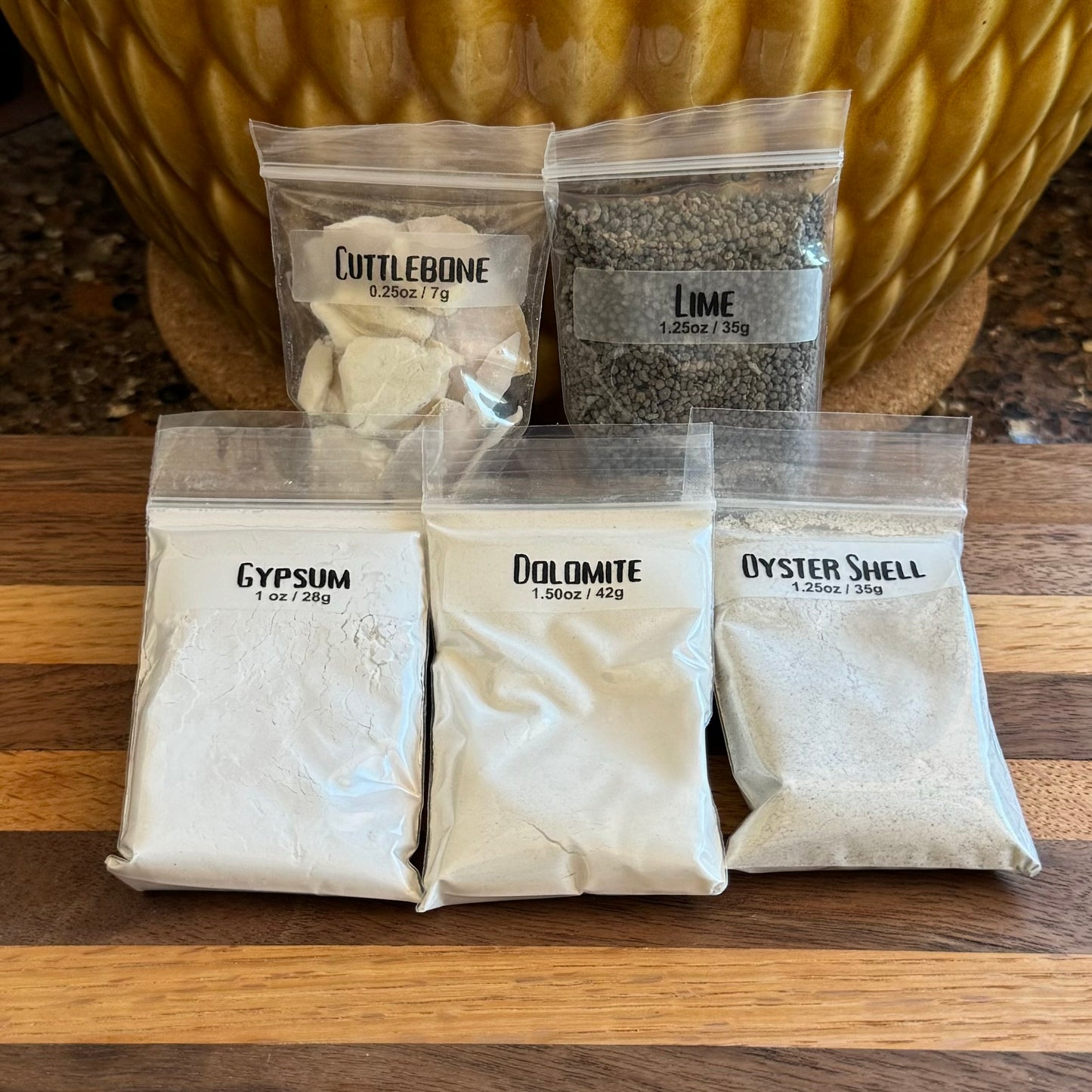Isopod Nutrition Samplers: Calcium
Isopod Nutrition Samplers: Calcium
Couldn't load pickup availability
Options: Dolomite lime (1.50oz / 42g), Gypsum (1.00oz / 28g), Lime, pelletized (1.25oz / 35g), Oyster shell flour (1.25oz / 35g), Crushed cuttlebones (0.25oz / 7g).
Sampler VALUE pack: you receive one of each!
Calcium is a key component of the isopod food pyramid, critical for a healthy exoskeleton and successful molts. Isopods get calcium from their regular diet of leaves and debris, and some keepers have reported they are perfectly healthy without calcium supplements. Calcium seems to excite isopods though, and many types are calcium-hungry. A lot of people observe that calcium supplements stimulate reproduction in their isopods, so it is an essential for breeders.
Mix powders into their soil, or offer them as a supplement. Powders can get mucky, so alternatively you can mix 2-to-1 with water and dry in an ice cube tray (or any mold!) to make a chalk block. Or if you're a weirdo, make a tiny calcium flight to experiment with which calciums they prefer. My Montenegro Clowns carried away the lime pellets in no time!
These samplers are designed for a beginner or someone without many isopods. If you only have one or two cultures, they will last you a long time. If you have—or plan to have—a lot of isopods, don't waste your time here. You can find most of these in bulk sizes as soil amendments at your local nursery supply, or oyster shell flakes as a poultry feed amendment. Don't want to buy 5 lbs of dolomite just to check if it will make your bugs mate? Yeah I know a guy who can get you an ounce of that.
What's the difference between lime and dolomite lime? Lime is made from limestone. Compared to limestone, dolomite limestone is older with denser form caused by the higher presence of magnesium.












